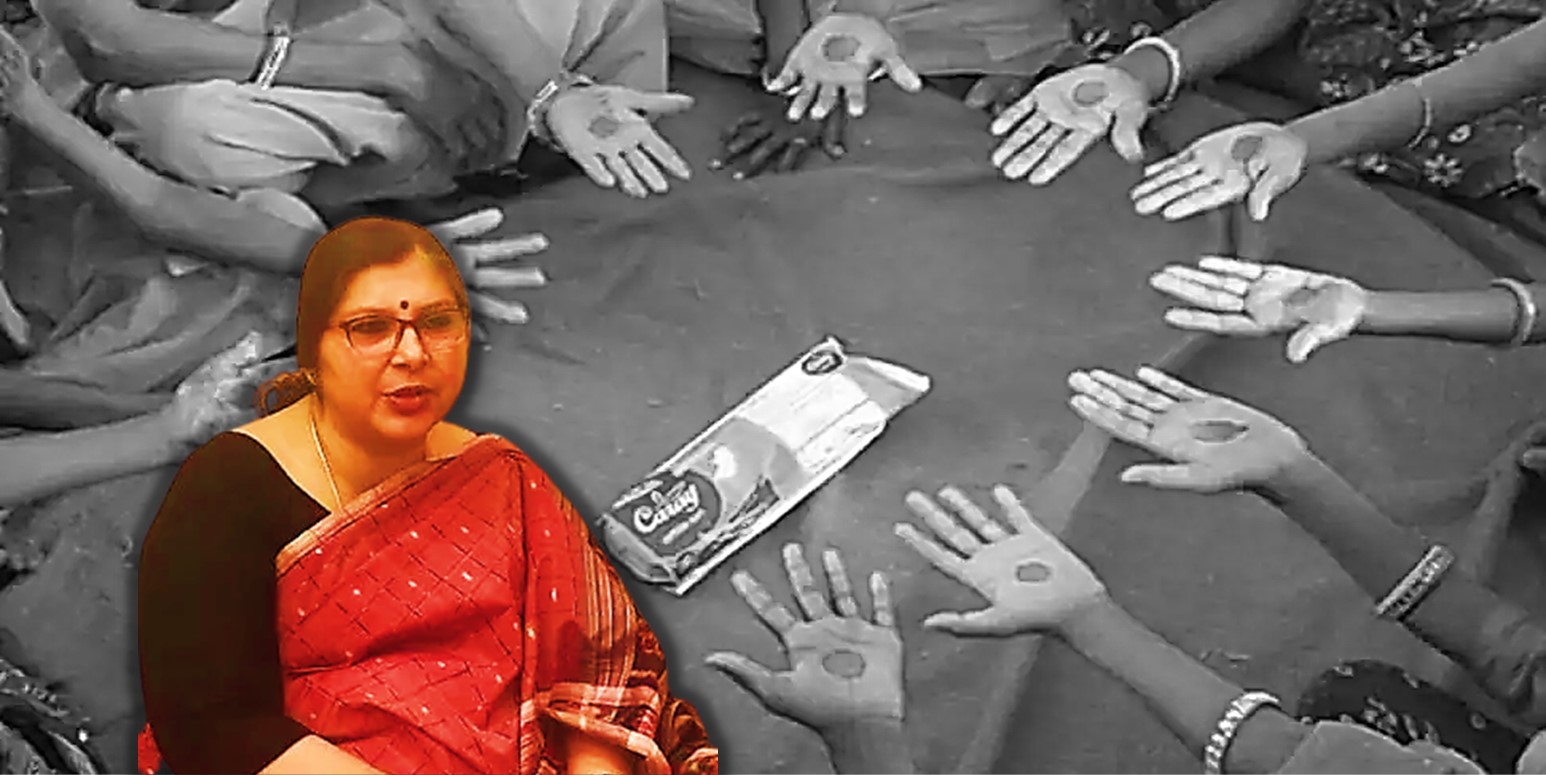IAS Harjot Kaur Bamhrah controversy: Women are given priority when selecting the caretakers of one of the most delicate sections of society. It is a common perception that women will make better decisions in matters related to the female gender. Holding high the banner of gender equality, women are often given preferences in roles dedicated to the upliftment of females. It is often advocated that women should hold the onus of working in the direction of women empowerment. However, this is just a preconceived bias and the recent incident of Bihar stands in deposition for the same.
IAS Harjot Kaur Bamhrah compares sanitary napkins with jeans and beautiful shoes
A video is being widely circulated on social media of a workshop organised in Bihar. In the video, IAS Harjot Kaur Bamhrah, a 1992 batch IAS officer currently serving as the Principal Secretary of Women and Child welfare Department, who is also the managing director of Bihar’s Women Development Corporation (WDC), was seen making controversial remarks.
During the workshop titled, ‘Sashakt Beti, Samriddh Bihar’, a student asked IAS Harjot Kaur Bamhrah about the possibility of the government providing sanitary napkins. She asked, “When the government has been doing so many things for us, including giving us uniforms and scholarships, why can’t it give sanitary pads, which would cost only Rs 20-Rs 30?”
The query received applause in response from the audience, as she had put forward a query, which must have been thought by many. Bamhrah almost lost her cool hearing the huge round of applause that the girl received and responded by saying that those saying should know that there is no end to such demands.
The statement that received the most backlash was, “The question is if the government gives sanitary pads.. There will be demand for jeans.. Shoes tomorrow and finally, there could be demand for free contraceptives for family planning.”
Also Read- The concept of Period Leave – Excellent in short-run but disastrous in long run
IAS fails to understand the importance of separate toilets
How her response went further suggests that she aimed to attack the freebies culture, as IAS Harjot Kaur Bamhrah said, “The government has been giving so many things. Expecting everything from the government is wrong.”
When the girl said that people’s votes determine who governs, the officer said, “This is the height of stupidity. Then don’t vote. Ban jao Pakistan (become like Pakistan). Do you cast ballots for money and services?”
When another student told IAS Harjot Kaur Bamhrah about the broken toilet door at her school, through which the boys could easily enter, the officer said, “Tell me do you have separate toilets at your home for males and females? If you keep asking for a lot of things at different places, how will it work?”
The governments, be it at the centre or at the states, are constantly working towards reducing period poverty and ensuring facilities like separate toilets, so as to increase the enrolment of girls in schools. But statements like these from a woman at a post supposed to be working for the cause of women empowerment defeats the entire purpose.
The line between Freebies and Welfarism
IAS Harjot Kaur Bamhrah heads the Social Welfare Department of the state government and is the nodal agency for implementing welfare schemes for women. But it seems that the female officer herself has not well understood the difference between Freebie and Welfarism.
Also Read- Women Sports and Menstrual Cycle: Jhulan Goswami asks the most pertinent question
The governments are working on a war footing regarding eradicating period poverty. The Menstrual Hygiene Scheme has been decentralised as soon as BJP held the power in 2014. ASHA workers and Anganwadi workers were involved in the project so as to reach the remotest of areas.
From 2014 onwards, funds are being provided to States and UTs under National Health Mission for decentralized procurement of sanitary napkins packs for provision to rural adolescent girls at a subsidized rate of Rs 6 for a pack of 6 napkins. To add on, the government has always advocated for proper sanitation facilities at the school, in order to increase the enrolment rate.
A lot has been done, still much remains
The Modi government realises that distribution of free or subsidised pads will not gain any benefit until the adolescent girls are made aware of the problems that can happen by not following menstrual hygiene. Therefore, many awareness campaigns are being run, like monthly meeting at the Anganwadi centres regarding menstrual hygiene.
PM Modi realises that a woman’s menstrual health is at the centre of her well-being. That must have been the reason behind him choosing a delicate issue of periods, while speaking from Lal Quila. PM Modi addressed menstrual health as a matter of public health rather than a problem affecting women.
As per the National Family Health Survey 5 (2019-2021), 27% of young rural women use unhygienic methods to manage their menstrual cycle, which was earlier 52% (2015-16). NFHS 5 survey suggests that India has made significant progress in other aspects of menstrual health as well.
Accessing safe ways to manage menstrual cycle, has been a long battle not only for the women but also entirely for the society. When women at high posts make such remarks, they don’t only undo the work done in decades but also defeat the cause.
Support TFI:
Support us to strengthen the ‘Right’ ideology of cultural nationalism by purchasing the best quality garments from TFI-STORE.COM

